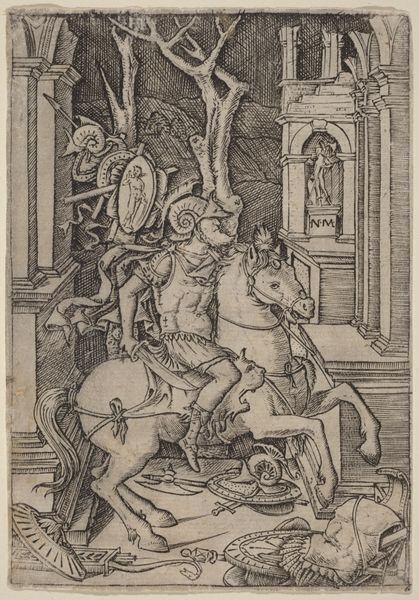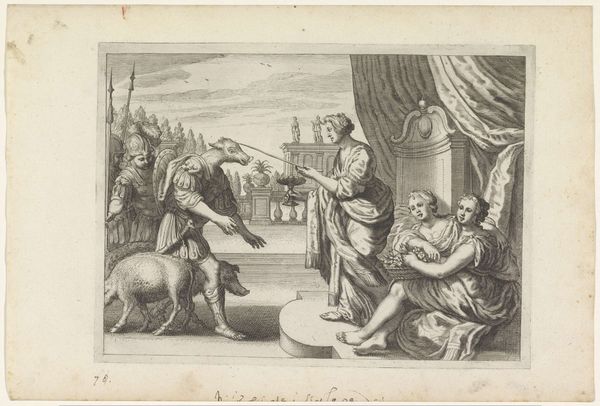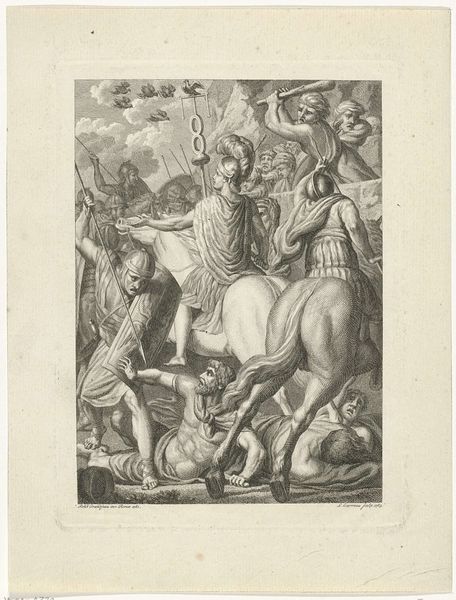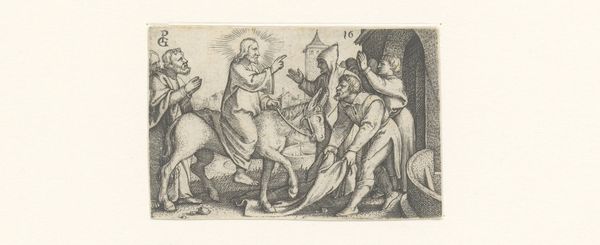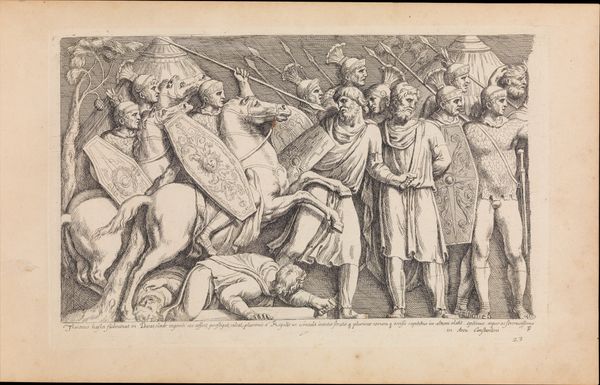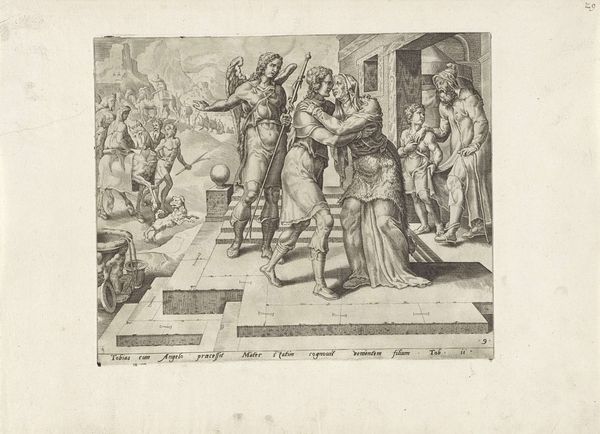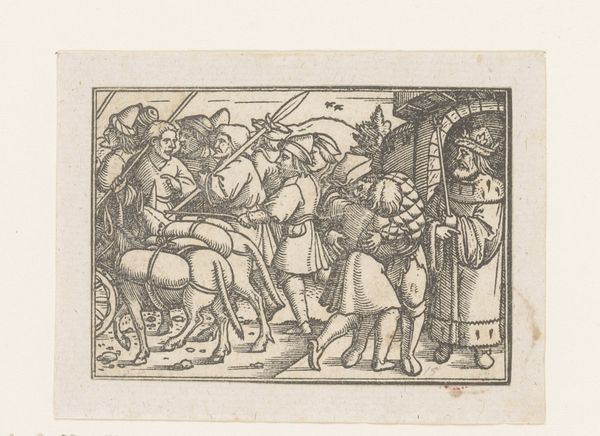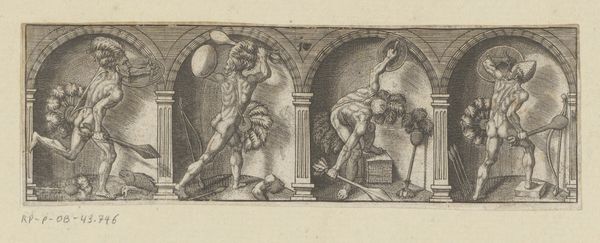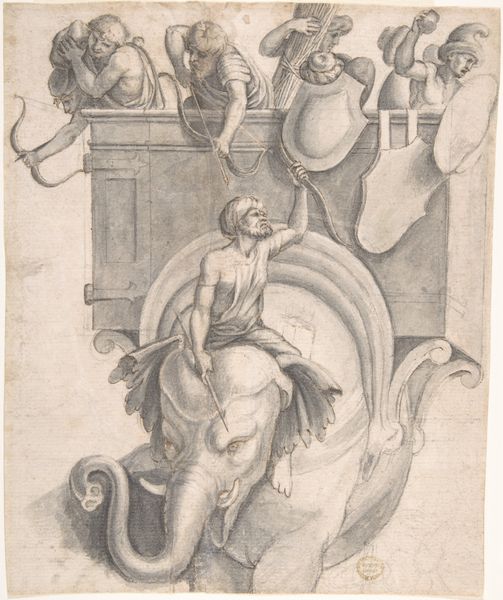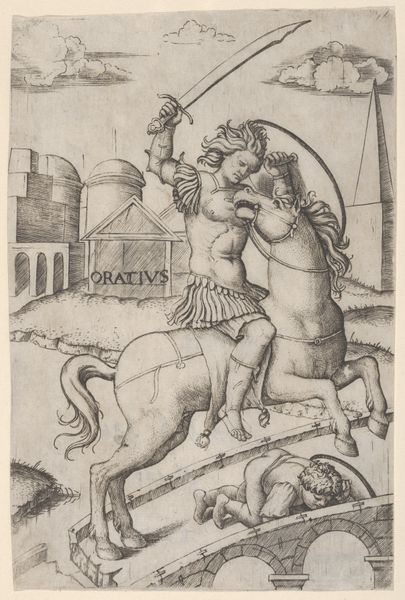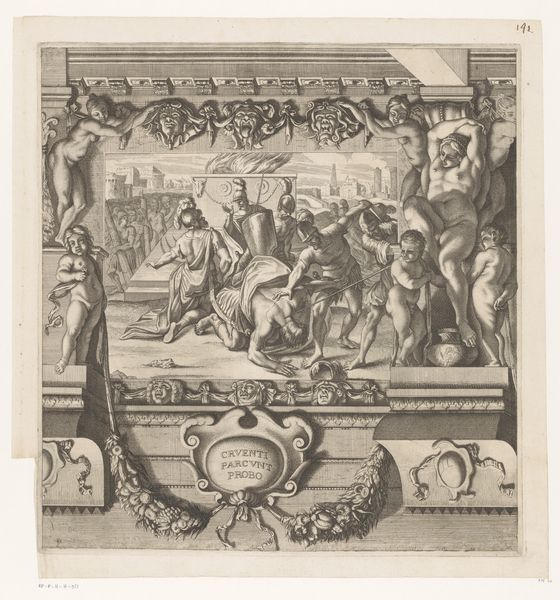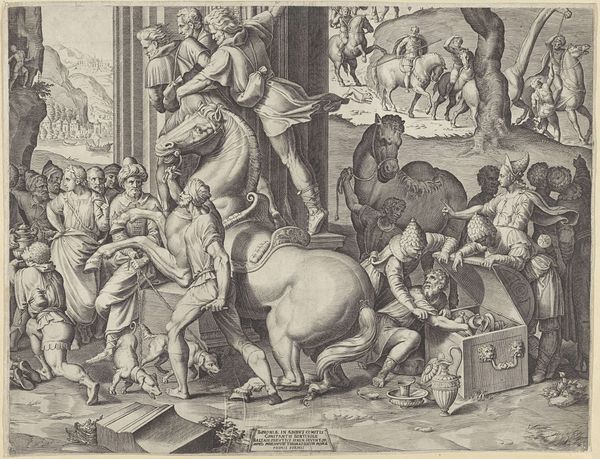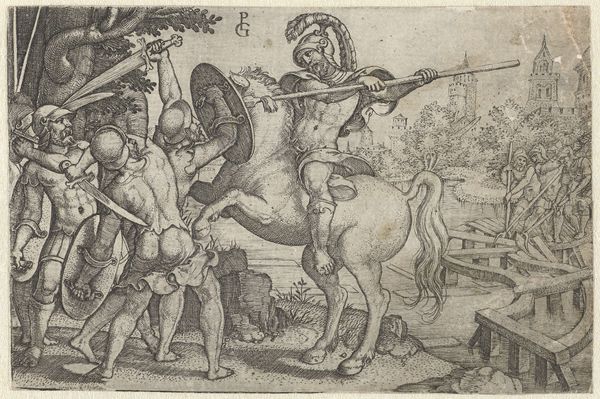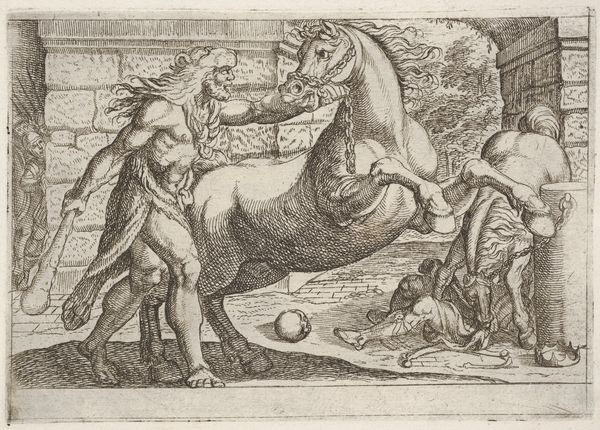
drawing, print, engraving
#
drawing
# print
#
landscape
#
figuration
#
form
#
11_renaissance
#
horse
#
men
#
genre-painting
#
history-painting
#
italian-renaissance
#
engraving
Dimensions: Sheet: 14 1/2 × 9 3/4 in. (36.8 × 24.7 cm) Plate (oval): 13 3/4 in. × 9 1/8 in. (35 × 23.2 cm)
Copyright: Public Domain
This print, Alexander Mastering Bucephalus, was made in France around 1550 by Léon Davent. It depicts the young Alexander the Great taming a wild horse, a popular subject used to express the qualities of a great leader. Consider how the image creates meaning through visual codes, cultural references, and historical associations. It was made during a period of strong monarchies in Europe, when the ruling class revived classical imagery to associate themselves with powerful rulers of the past. Alexander was a particularly useful model. Mastering Bucephalus was a test of leadership. Was the ruler strong enough to master his passions, or was he destined to be led astray by them? In order to better understand the meaning of the image, we can look at the tradition of emblem books, works of political theory, and histories of the period. Art is always contingent on social and institutional context.
Comments
No comments
Be the first to comment and join the conversation on the ultimate creative platform.
